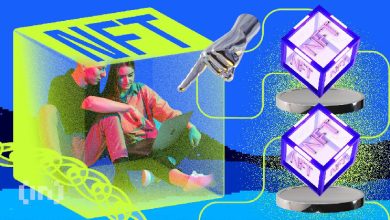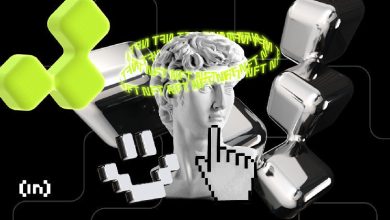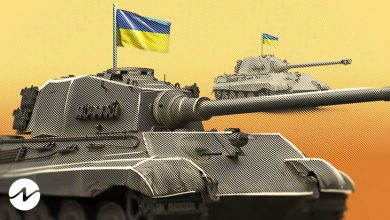Dapper Labs Ruling Could Spell Trouble for Other Centralized NFT Projects, Experts Say

NFT
www.coindesk.com
23 February 2023 22:52, UTC
Studying time: ~9 m
A latest authorized determination could supply some much-needed – although not much-liked – readability on the regulatory panorama forward for non-fungible tokens (NFT) that will outline how centralized firms proceed in coming into Web3.
The federal choose in New York overseeing a class-action lawsuit towards Dapper Labs dominated Wednesday to disclaim the corporate’s movement to dismiss the go well with, writing that the plaintiffs’ claims that Dapper Labs’ NBA-branded High Shot Moments NFTs are securities – and that promoting them with out first registering with the U.S. Securities and Alternate Fee (SEC) was a violation of federal securities legal guidelines – are “believable.”
In his 64-page Wednesday ruling, U.S. District Courtroom Choose Victor Marrero of the Southern District of New York thought of Dapper Labs’ NFT assortment below the 4 prongs of the Howey take a look at, a 90-year-old methodology devised by the U.S. Supreme Courtroom to find out whether or not sure transactions qualify as “funding contracts.”
Marrero acknowledged that the plaintiffs adequately argued that the High Shot NFTs met every of the 4 prongs of the Howey Take a look at. The fourth prong – that the earnings anticipated from an funding should be derived from the efforts of others – was notably vital to Marrero’s evaluation.
As a result of Dapper Labs controls the Circulate blockchain the NFT assortment is constructed on in addition to {the marketplace} the place the NFTs are purchased and offered, Marrero advised that the monetary viability of the challenge was depending on Dapper Labs’ continued success.
“All that Moments purchasers personal is, primarily, the road of code recorded on the Circulate Blockchain,” Marrero wrote. “It follows that, if, hypothetically, Dapper Labs went out of enterprise and shut down the Circulate Blockchain, the worth of all Moments would drop to zero.”
Although Dapper Labs tried to argue in its movement to dismiss that the NFTs have been the digital equal of some other cardboard-based collectible, like Pokemon playing cards or baseball playing cards, Marrero basically disagreed.
“It’s the specific scheme by which Dapper Labs gives Moments that creates the ample authorized relationship between investor and promoter to ascertain an funding contract, and thus a safety, below Howey,” Marrero concluded.
An influential ruling
Although Marrero’s ruling is, by his personal admission, “slender” (which means it doesn’t essentially imply that different NFTs are securities), and is neither remaining nor units precedent, authorized consultants agree that it’s important – each for Dapper Labs and the broader NFT house.
Anthony Sabino, a professor of legislation at St. John’s College, informed CoinDesk that Marrero’s opinion that Dapper Labs’ NFTs meet the definition of securities “could not essentially be precedential, but it surely shall be fairly influential as a result of it emanates from the Southern District [of New York], as a result of it is from an eminent jurist and since it simply makes a variety of sense.”
“The judges within the Southern District of New York are notably adept at securities circumstances, given that they’re inside strolling distance of Wall Road itself,” Sabino mentioned. “They’ve their finger on the heartbeat of Wall Road. They see these circumstances on a regular basis.”
Sabino added that the Southern District of New York reviews to the federal Second Circuit Courtroom of Appeals, which he mentioned has been acknowledged by the U.S. Supreme Courtroom because the Seventies because the “mom court docket” of federal securities legal guidelines.
Different legal professionals, nevertheless, reminiscent of Jesse Hynes, a New Jersey-based legal professional whose follow contains cryptocurrency legislation, see much less cause to imagine Marrero’s evaluation spells catastrophe for both Dapper Labs or the broader NFT house.
Motions to dismiss, Hynes defined, are frequent – and normally unsuccessful – makes an attempt to cease lawsuits earlier than they get to trial.
“Attorneys will throw up a ‘Hail Mary’ of types [to end the litigation],” Hynes informed CoinDesk. “Or, in line with the basketball analogy – a full court docket shot with their eyes closed.”
Hynes informed CoinDesk that so long as the plaintiffs’ declare was deemed to be “fairly possible,” the criticism was decided to proceed to the following stage of litigation.
A difficulty of centralization
Whether or not or not Marrero’s ruling units precedent or not, authorized consultants agree different judges will hardly be the one individuals to be aware of his evaluation – notably his insinuation that it was Dapper Labs’ creation and management of the Circulate blockchain and {the marketplace} that introduced the High Photographs NFTs below the Howey Take a look at’s prongs.
“This case is all about centralization and exterior dependencies,” mentioned Mike Selig, a New York-based cryptocurrency legal professional at Willkie Farr & Gallagher. “The plaintiffs argue that the NFTs are distinguishable from bodily basketball buying and selling playing cards as a result of Dapper [Labs] maintains the blockchain on which the NFTs function, runs the secondary market the place the NFTs commerce and engages within the ongoing advertising and marketing of the NFTs to shoppers.”
Moish Peltz, a New York-based companion at Falcon Rappaport & Berkman whose follow focuses on cryptocurrencies and mental property, informed CoinDesk that it was “ironic” that Dapper Labs’ determination to construct on prime of the Circulate blockchain “in a selected try to create a greater client expertise was seized on by the Courtroom.”
“Since Moments reside solely on the Circulate blockchain, the [National Basketball Association] was attempting to unravel for most of the monetary, mental property and regulatory points which have plagued model house owners on public blockchains,” Peltz mentioned. “This determination straight challenges the rationale {that a} centralized NFT market expertise is routinely safer for manufacturers.”
Although Marrero construed his personal determination as “slender” and argued that “not all NFTs provided or offered by any firm will represent a safety,” Peltz mentioned his determination ought to push manufacturers to “extra deeply contemplate the relative deserves of whether or not to construct personalized experiences below their unique management on centralized blockchains, versus deploying on public blockchains.”
Jeremy Goldman, an mental property (IP) lawyer and companion at legislation agency Frankfurt Kurnit Klein & Selz, informed CoinDesk the ruling could be excellent news for NFT initiatives constructing on public blockchains.
“Of us minting NFTs on public blockchains and utilizing open marketplaces can breathe somewhat simpler,” Goldman mentioned. “The overwhelming majority of NFT initiatives don’t share these key info that troubled the court docket.”
He famous that Dapper’s technique in making a “walled backyard” inside its platform is what contributed to the ruling, offering future steerage on how one can create NFT platforms and merchandise.
“As with most blockchain ventures, the extra centralized the NFT providing, the better the danger that the providing can be deemed a safety,” mentioned Goldman. “My hope is that the Dapper Labs determination helps educate courts, lawmakers and regulators on the elemental distinction between non-public and public blockchains; between centralized platforms and decentralized protocols.”
Is decentralization the answer?
“This case demonstrates that decentralization is simply as vital within the case of NFTs as with fungible tokens,” Selig informed CoinDesk.
Sabino, the legislation professor, agreed. He argued that if Dapper Labs was extra decentralized, it may have presumably prevented triggering Howey.
As a result of Dapper Labs’ managed {the marketplace} the place its NFTs have been offered, Sabino argued, the position of traders was diminished.
“That method, the purchasers turn into true traders, passive in nature, and subsequently makes it a safety topic to federal securities legal guidelines,” Sabino mentioned. “To the extent that there’s decentralization and the purchasers are much more lively they usually’re far much less reliant on the ‘efforts of others,’ then it turns into much less doubtless that the NFT falls inside Howey.”
Nevertheless, not all authorized consultants are hopeful that decentralization would supply any safety for NFT initiatives.
“I simply don’t assume that the argument of one thing being centralized or not being centralized can be ample to beat this case,” mentioned Max Dilendorf, a New York-based cryptocurrency legal professional, informed CoinDesk, pointing to a 2018 case the SEC introduced towards decentralized buying and selling platform EtherDelta.
Within the EtherDelta case, Dilendorf mentioned, ”the [SEC] mentioned, ‘Hey, , we don’t actually care if you happen to’re decentralized or not, it’s irrelevant. You launched one thing that was unlawful, the change was operated as an unregistered securities change, so that you, because the founder, are liable.”
“I feel it’s simply so extremely troublesome to make an argument that any blockchain challenge is decentralized. It’s unattainable, proper?” Dilendorf mentioned. “I don’t assume anybody would be capable to depend on that.”
Some NFT firms seem unbothered
Whereas legal professionals could be nervous concerning the implications of Marrero’s ruling, main gamers within the NFT house are to date unfazed by the implications the case could have on their future operations. In different phrases, they’re assured within the perception that NFTs usually are not securities.
“Courts have repeatedly discovered that client items – together with artwork and collectibles like basketball playing cards – usually are not securities below federal legislation,” a consultant from Dapper Labs informed CoinDesk. “We’re assured the identical holds true for Moments and different collectibles, digital or in any other case, and stay up for vigorously defending our place in court docket because the case continues.”
Josh Rosenblatt, chief working officer and basic counsel of Co:Create, an organization that helps NFT initiatives launch their very own cryptocurrencies, informed CoinDesk that with reference to regulation the Dapper Labs case is “not an vital ruling,” and that the case will set no precedent for the way forward for NFTs being labeled as securities.
“Finally, if a token, whether or not fungible or non-fungible, have been deemed a safety, then the issuer would both have to register with the SEC or reap the benefits of an exemption from registration,” mentioned Rosenblatt. “I feel the crypto group will eagerly watch from the sidelines, and I personally can be shocked if the ruling in the end went towards High Shot.”
Rosenblatt specified that whereas the danger of regulators deeming NFTs as securities is low, fractionalized NFTs – or NFTs that signify shared possession of 1 token – usually tend to fall into this class.
Sanjay Raghavan, head of Web3 initiatives at blockchain real-estate firm Roofstock onChain, informed CoinDesk that the specificity of Dapper Labs’ scheme to create a personal blockchain and market could render its NFTs as securities, however making use of the identical ruling to all NFTs can be a “broad overreach” of the Howey Take a look at.
“There are various NFT initiatives working on public blockchains with excessive consumptive worth and related IP rights that don’t essentially meet the prongs of the Howey Take a look at,” mentioned Raghavan. “Whether or not it’s staking-as-a-service, stablecoin yield packages or NFTs on non-public blockchains, it’s doable to have a look at the a whole lot of appellate circumstances to find out what constitutes an funding contract and what doubtless doesn’t.”
Trying forward
Whereas the NFT regulatory panorama continues to be comparatively new territory for each creators and collectors, the Dapper Labs ruling is probably not promising for the way forward for a tokenized financial system.
It’s particularly troublesome for Web3 firms that depend on centralized entities to assist join shoppers and types, which serves because the ethos behind many of those initiatives. As mainstream manufacturers reminiscent of Nike and Starbucks take their first steps into NFTs, the Dapper Labs ruling could function a warning signal for centralized firms tapping into Web3.
A consultant from secondary NFT market OpenSea informed CoinDesk that classifying all NFTs as securities isn’t believable attributable to tokens’ various utility. Whereas the underlying expertise could also be adjoining, their use circumstances reminiscent of gaming, artwork, ticketing and digital identification all benefit totally different ranges of regulatory scrutiny.
Whereas regulators could proceed to make use of the Howey Take a look at prongs on initiatives that pose the danger of being labeled as securities, Goldman believes the ruling is a major step in offering regulatory readability for all NFT initiatives spanning the house, whether or not public or non-public.
“Proper or unsuitable, the choice gives among the finest authorized steerage I’ve seen – mainly a street map – on how one can construction NFT initiatives in a method that minimizes securities dangers,” mentioned Goldman.





